Collaborations
Creative and passionate—working hand-in-hand
Photo credit: Norayr Kasper, "Residues of a Slogan." Fotoistanbul 2015.Join our community and receive regular updates!
Join now!Any additional references or recommendations? We would love to hear your suggestions!
Send a message
#IsolateWithHPem episode 14: Chef Ara Zada
Running out of juice during these trying times? Well, we've got you covered! On April 6, h-pem kicked-off its social connection initiative #IsolateWithHPem. For the foreseeable future, we will periodically post exclusive videos from our talented friends, who are professionals in their respective fields—from cooking and dance to comedy, journalism, and beyond. Their snappy tutorials will help us all combat the challenges posed by physical isolation through a virtual learning hub. Stay tuned!
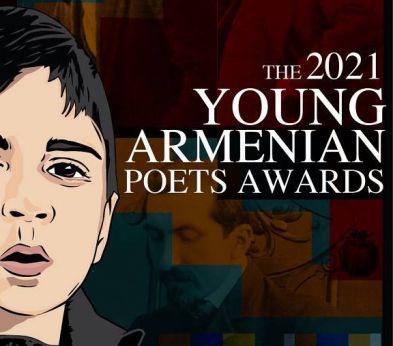
IALA x h-pem | A love affair with poetry!
H-Pem is thrilled for the opportunity to partner with the newly founded International Armenian Literary Alliance (IALA) and host their inaugural Young Armenian Poets Awards.
Poetry has the power to unlock young people’s imaginations, inspire change, and challenge us with diverse reflections, especially in these trying times.
We’re all for creative ingenuity and are set to celebrate the winning entries. If you’re an aspiring poet between the ages of 14-18, join IALA’s contest. It's your chance to get your voice heard and initiate a meaningful conversation with the beauty of words.
Tap into your inner poet with fresh and exclusive insights from IALA Board leaders in the article below!
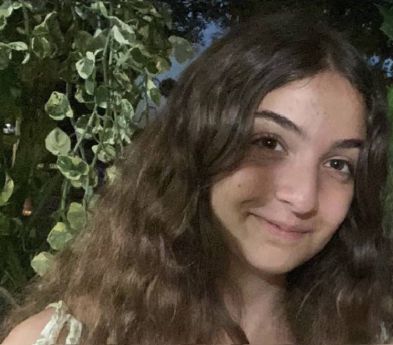
IALA x h-pem | Go light on the sweetness
“Go Light on the Sweetness” shines in its subtlety. Rendered with vivid imagery, the flower — “Encompassing millions of / Beginnings, endings, / And middles” — becomes a vibrant symbol of memory, of the struggle between history and amnesia, of the compelling juxtaposition between the absence of remembering and the presence of not forgetting. Characteristic of the Armenian experience, that juxtaposition is universally human. By asking, “Does the honey cause a paucity of flavor?” the writer summons a flower’s sweet nectar to toggle between presence and absence; in this case, the presence of honey subtracts flavor. What does it mean, then, when expectations collapse, when the natural order evaporates like the steam rising from hot water? To that tension, the writer responds, “My moral compass spins as / I pour in the sweetness,” evoking a disorientation all too familiar throughout the past year-and-a-half of death, destruction, and deception. All that remains is the in-between. We’re caught in a nebulous space, an origin point between polarities that force us to find footing on the continuum of an uncertain world. And maybe that’s where we must take root — acculturating “in both worlds.” It is this noteworthy sense of subtlety and soul that makes “Go Light on the Sweetness” a disquieting and imaginative interrogation of the in-between.
Commentary provided by YAPA contest judge Raffi Wartanian
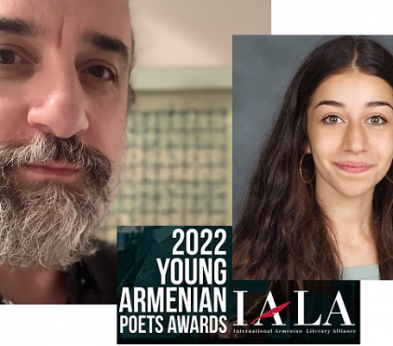
IALA X h-pem | THE 2022 Young Armenian Poets Awards: Building Bridges
“We all need a destination in which we might envision our work living.” In these words, Alan Semerdjian, Founder and Director of Young Armenian Poets Awards once again turns to h-pem to find an “authentic audience” for IALA’s (International Armenian Literary Alliance) annual awards.
These are turbulent times! While the soul of our nation is in turmoil, IALA taps into young talent and invites them to self-reflect by posing existential questions that beg for answers:
How can poetry serve as a bridge between Armenia and the over five million persons of full or partial Armenian ancestry living outside it today? What kinds of conversations might be necessary between Armenians and the world or across the diaspora itself?
Straight insights are not easy to come by. Yet, it’s fascinating to see how the young awardees dig deep into the topic and bring their own unique perspectives laced with symbolism, fantasy, and elegy. Fraught with the conflicts we all mediate internally, they guide us with empathy, love, and the hope of renewal.
Check out Semerdjian's whirling introduction to the 2022 YAPA below.
Follow the links in the article for a hauntingly beautiful poetic conversation we would all desire, especially during this critical and somber time in our history.
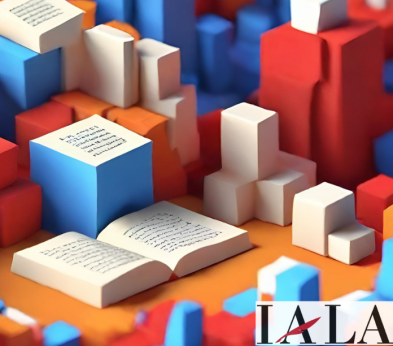
IALA X h-pem | 2023 Young Armenian Poets Awards: On Visibility
In a time of turbulence and uncertainty, the Young Armenian Poets Awards (YAPA) stands as a beacon of hope and expression. Founded and directed by Alan Semerdjian, YAPA of the International Armenian Literary Alliance (IALA) collaborates with h-pem, which, in turn, seeks to provide an authentic audience for the annual awards. As our nation grapples with turmoil, YAPA invites young talents to explore profound existential questions. How can poetry become a bridge connecting Armenia and its vast diaspora? What dialogues are essential within the Armenian community and with the world? These questions are met with insightful responses, as young awardees delve deep into their souls, weaving symbolism, fantasy, and elegy into their work.
In 2023, the theme of "Visibility" resonates deeply as the Armenian people face challenging times, particularly in Artsakh. The lack of media coverage and international support is disheartening, leading many to feel as though they are disappearing before their own eyes. However, YAPA continues to shine a spotlight on these issues through the power of poetry. This year's winning and honorable mention poems offer poignant reflections on identity, remembrance, and resistance.
Gregory Djanikian, Armine Iknadossian, Alan Semerdjian, and Raffi Wartanian, distinguished individuals in the literary world, provide insightful commentary on the winning works. These poems encapsulate the essence of the Armenian spirit, addressing the struggles and resilience of a people whose stories deserve to be told. YAPA's mission to illuminate the dark corners of our universe through poetry remains steadfast, and it is through the voices of these young poets that we find a glimmer of light and hope during these somber times.
Read on to understand more of YAPA's 2023 edition through Alan Semerdjian's lenses.
New
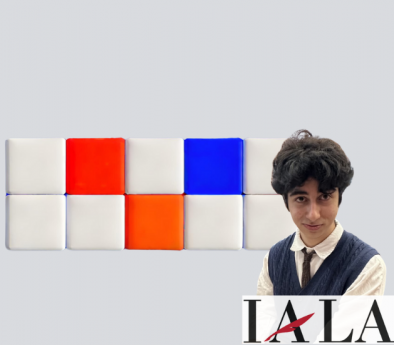

IALA X h-pem | Anahit's Legacy by Vladimir Mkrtchian
Vladimir Mkrtchian is a sixteen-year-old student attending Wellington C. Mepham High School on Long Island. Mkrtchian writes in English, Armenian, and French and is pursuing a Seal of Biliteracy in the French language. He won several regional and district-wide writing contests, earning an honorable mention at the Walt Whitman Birthplace 2023 Student Poetry Contest, and publication of his works in his school’s literary magazine, Fragments. Currently, he is an assistant teacher at the Holy Martyrs Armenian Language School in Queens, New York—teaching the Armenian language to Nursery students while also writing monthly issues on behalf of the school in the church’s newsletter, Narrec. He continues to write today, sharing his Armenian-influenced works with his teachers, friends, and the district in hopes of spreading awareness and bridging the gap between American and Armenian communities.
Vladimir Mkrtchian's poem "Anahit's Legacy' is one of the winners of the 2023 Young Armenian Poets Awards. Read Vladimir's haunting poem below.
New
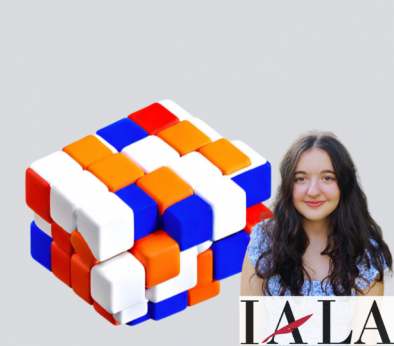

IALA X h-pem | The Children of Armenia by Sofia Viana Ogulluk
Sofia Ogulluk is a 14-year-old freshman at Manhasset High School on Long Island, New York. She is a passionate writer, who loves to write in all kinds of genres and styles. Some of her favorite styles of writing are poems, novels, and songs. In addition to writing, she loves to participate in Armenian Dance, Broadcast Journalism, Girl Scouts, and Theatre. In her free time, she likes to learn languages, hike, travel, and spend time with friends. A fun fact about her is that she also has attended AGBU Camp Nubar for the past four summers.
Sofia Ogulluk is one of the winners of the 2023 Young Armenian Poets Awards (YAPA). You can read her winning submission below.
New


IALA X h-pem | Mother my shadow by Isabel Nargizian
Isabel Nargizian is a 17-year-old proud Armenian born and raised in LA. Currently a freshman at UCLA, Isabel is studying psychobiology and pursuing her passion of composing music on the side. Classically trained in piano, she began branching out in the last two years, forming her musical identity as a singer/songwriter. While she always perceived herself a musician before a writer, her aptitude to express herself through lyrics inspires her to also write poems. To Isabel, poems are lyrics with a unique melody, one each reader silently creates in their head based on the tempo and rhythm words are interpreted. Isabel's fervor to continually support the Armenian community enables her to vocalize people’s needs and opinions in her work.
Isabel Nargizian is one of the winners of the 2023 Young Armenian Poets Awards. Continue scrolling to read her winning submission.
New
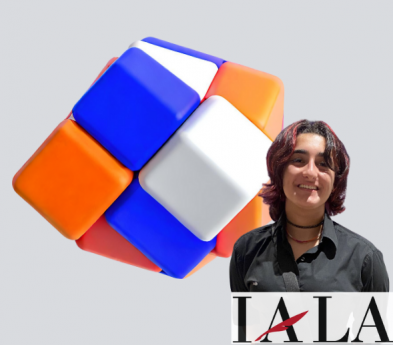

IALA X h-pem | Seen by Armenians by Alessandra Agopian
Alessandra Agopian is 16-year-old a junior at Horace Mann School in New York. She is a proud Armenian with a passion for poetry and creative writing, following in the footsteps of her great grandfather, famous poet and writer Sisag Varjabedian.
Alessandra's submission is the honorable mention of the 2023 Young Armenian Poets Award. Continue to read her submission.